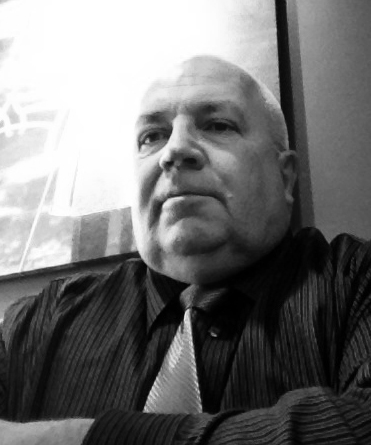In the month leading up to the 2014 3-Day Novel Contest, we’ll be interviewing previous winners, who will share their experiences and tactics for tackling the contest.
Today’s interview is with 1998 and 2012 winner Bradley Harris of Ruby Ruby and Thorazine Beach.
1. Which was the moment you decided to sign up for the contest? Why?
My first—and tiny—successes in writing had come from contests. A couple of local writing-
club contests when I lived in Calgary. I wrote a story, ‘Curves,’ from a young woman’s point of
view. It hit a win in a contest with Calgary-based Forewords magazine, then another with
Memphis Magazine after I moved to that city. Indeed, I’d racked up a total of $2550 from that
story—welcome dollars indeed, for a student. Contests looked good to me. So when I first heard
of the Three-Day back in the nineties, before my first Three-Day win, it took about two
picoseconds to say “Yes!” Motivation for entering in 2012, the year of my second win…Same as
my motivation for entering this upcoming year, 2014: the opportunity to create a book-length
first-draft I could work on later, and could lay out in a single thrust.
2. What prep work, (if any,) did you compile before the contest?
“Prep”? Gosh, when it comes to writing, I don’t understand the meaning of the term.
“Outline”? Do I work from an outline? Don’t be silly—outlines are what you write after you
write the piece itself, just to satisfy the professor.
3. Describe the darkest crevasse you fell into during the writing period.
The question presumes there were “crevasses,” and a plurality of them, and that these were
dark.
I recognized no crevasses at the time, in any Three-Day Novel experience, and recall none
now.
4. What pulled you out of it?
If there was a crevasse, I was too busy writing to notice.
Lest this answer appear too cavalier, let me put the point another way… For me, (what I
suspect you mean by) crevasses happen when I’m fretting about something not connected, or
only half-connected, to my writing. It’s the half-connected ones that are dangerous. Wondering,
for example, about a character: Hmm, should Wiggers be a tall man? Should he wear a sports
jacket or a windbreaker?… Such details can be important in a final text. But they’re not important
in drafting. Lesson to myself: If you feel distracted, write anyway… write anything.
5. What is the most valuable thing you took away from the three days?
Writing takes craziness. But it takes a sane, rested craziness. Both Three-Day years, I slept.
Each night. Not a full eight hours, I admit. But a solid six. One year, I even went to church
Sunday morning.
The smartest thing I was ever taught during my MFA Creative Writing program came in two
words: Write fast. If you can think as fast as you can type—and if you can’t, you’ve got bigger
troubles than anyone can deal with here—you can do the Three-Day Novel contest successfully
and walk away with a rough draft you can be proud of. You can do it without staying up all
night. You can do it without the amphetamines one magazine interviewer outright presumed I’d
been popping. All you do is… write fast.
6. What are you up to now? Was the 3-Day Novel Contest a detour on your already thriving passion for writing, or did it direct you into the new love of being a novelist?
I’m not primarily a novelist. Indeed had never written a full-length work till I first entered
the Three-Day (excepting a play written as one of my theses in graduate school). I’m a short
story guy, really. (And my poetry blows, incidentally.) Short story or novel, I’m deeply
interested in place as part of fiction, how place both echoes and creates human moods, human
emotions, human doings. Or, as my best friend Peg Oneil says: “Nothing ever happens in your
stories.” True, that: Go read Ruby Ruby and Thorazine Beach. You’ll see that, and you’ll see Peg
soundly thrashed in the acknowledgements. Just as well: My favourite response to my text is to
see a reader cry.
I’m on a new novel in the same series as my first two Three-Day winners. (I’d be nuts not to
continue that series of detective novels and try to interest some fancy New York agent.) It’s
called Fort God, all about murder and financial mayhem in a huge fictional Baptist church in
Memphis that only coincidentally resembles a huge non-fictional Baptist church in Memphis. A
science fiction novel, too, about what might happen if a dementedly fundamentalist Christian
America found its way to interstellar space and a new species that may or may not be intelligent.
As well, I’m thinking about a new piece in a different mode altogether—can’t tell you more,
because I’m drafting it for the Three-Day this year.
I teach writing, too. Lord, I love that. Professionally, I’ve been a trainer and training designer
since Christ was a corporal, so it’s lovely to combine these two arts, writing and instruction. I
believe that most if not all of the arts of fiction are ultimately teachable, eminently learnable, if a
teacher has real method and a student has the heart and will. Call me… I’ll come… I’ll teach you,
and you will get to be a better writer.
7. Last – and most important! – any advice for writers looking to sign-up?
Do sign up. Today. Right now. Before you back out. Don’t think about winning—my wins
were a bit about talent and a lot about luck. There’s no control a writer can exercise over the
selection process. Let the contest organizers and judges do their invariably superb job with all
that. You… just pour some coffee… fire up Microsoft Word… say a prayer… write. Enjoy. And be
grateful.
